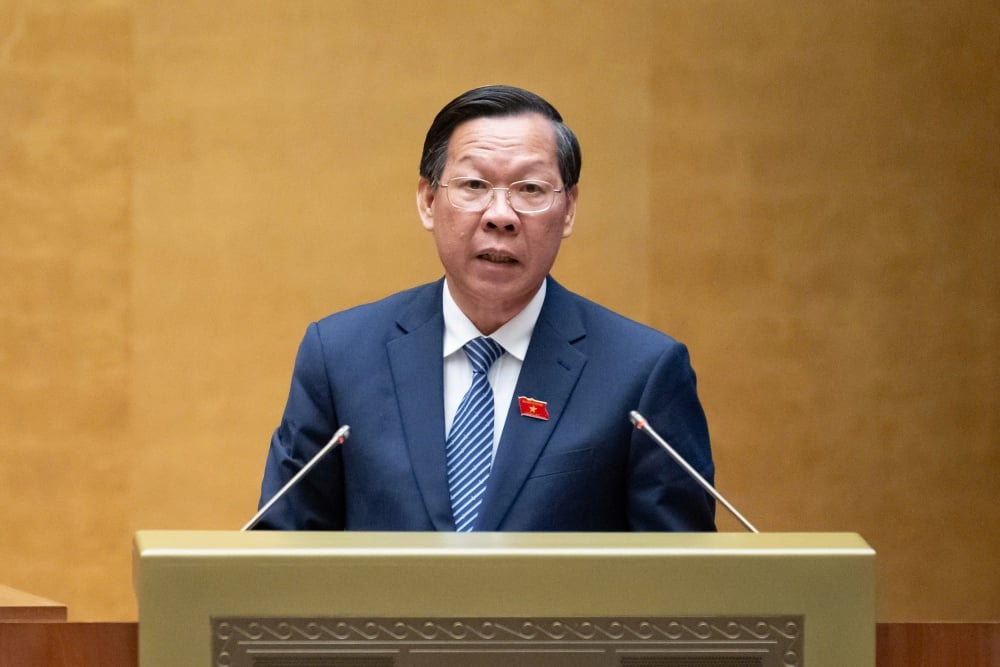 |
| Chairman of the National Assembly's Economic and Financial Committee Phan Van Mai presented the Verification Report on the supplementary assessment of the results of the implementation of the socio-economic development plan and state budget in 2024; the implementation of the socio-economic development plan and state budget in the first months of 2025. |
Solid foundation
The year 2024 marks a great step forward in Vietnam's socio-economic development, despite the volatile world context with trade wars, geopolitical competition and increasing protectionism. Chairman of the Economic and Financial Committee Phan Van Mai said that Vietnam has achieved and exceeded all 15/15 main targets, creating comprehensive changes in all fields. The macro economy has been maintained stable, inflation has been tightly controlled, and major balances of the economy have been ensured.
The positive recovery of the economy is reflected in the GDP growth rate of 7.09%, bringing the economic scale to 476.3 billion USD, ranking 32nd globally. State budget revenue reached a record of over 2 million billion VND, exceeding the estimate by 342.7 trillion VND, while 197.3 trillion VND in taxes and fees were exempted, reduced, and extended. Traditional growth drivers such as investment, consumption, and export continued to be effective. Realized FDI capital reached 25.4 billion USD, total retail sales of goods and consumer services revenue increased by 9%, and trade surplus reached 24.8 billion USD.
Digital transformation and innovation are bright spots, with Project 06 delivering substantial results. E-commerce grew by 20%, leading the region, and the global innovation index rose two places to 44/133. The fields of culture, society, health , social security and sports were focused on, with the poverty rate falling sharply, especially in ethnic minority areas. The parade and march to celebrate the 50th anniversary of the Liberation of the South and National Reunification Day aroused national pride and strengthened great solidarity.
Mr. Phan Van Mai affirmed that these results are a testament to the correct direction of the Party, the determination of the Government, the support of the National Assembly and the efforts of the entire political system. However, he also noted that the economy still faces many challenges, such as limited resilience to external shocks and the forecasting of state budget revenue is not close to reality.
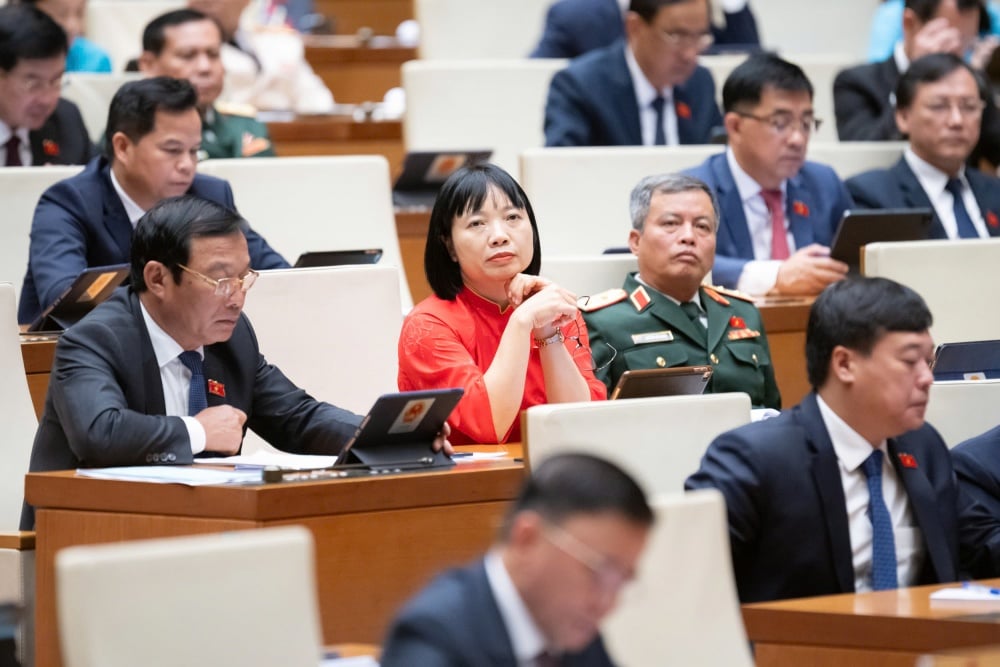 |
| View of the Meeting |
Socio-economic challenges in the first months of 2025
Entering 2025, Vietnam's economy continues to maintain positive growth momentum, with GDP in the first quarter reaching 6.93%, the highest in the same period in the 2020-2025 period. The macro economy is stable, inflation is controlled at 3.2%, and the industry, trade, services, and tourism sectors record strong growth. Tourism reached a record with 7.7 million international visitors, up 23.8% over the same period. Foreign investment attraction flourished, with realized FDI reaching 6.7 billion USD, the highest in the 2020-2025 period.
However, Chairman Phan Van Mai pointed out that the growth in the first quarter of 2025 has not met the set scenario, putting great pressure on achieving the target of 8% for the whole year, requiring the remaining quarters to grow by an average of 8.4%. Domestic consumption increased slowly, with retail sales of goods increasing by only about 5.6% after excluding price factors. The private economic sector has not made a breakthrough in scale and competitiveness, with an average of 26.3 thousand enterprises withdrawing from the market each month.
Although public investment disbursement progress has improved, it only reached 9.53% of the plan by the end of March, lower than the 12.27% in the same period in 2024. Merchandise exports grew more slowly, with three major markets accounting for 49% of total turnover, showing increased trade dependence. The financial and monetary markets face bad debt risks and pressure to mature real estate bonds, accounting for 64% of the total maturity value in 2025. Domestic gold prices fluctuate unpredictably, and gold market management remains limited.
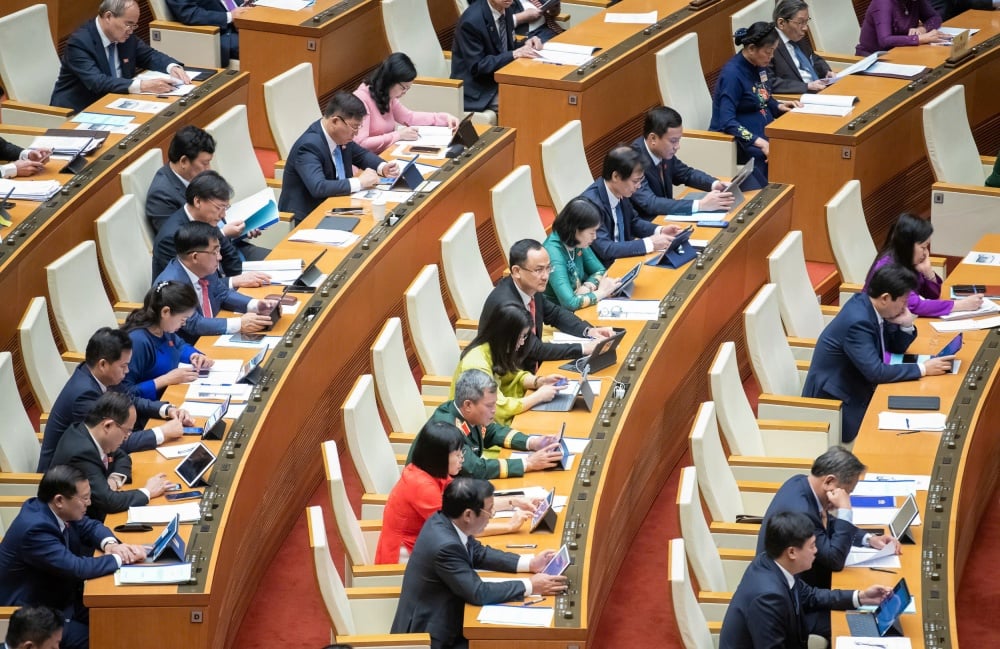 |
| View of the Meeting |
On the social side, the situation of counterfeit and poor quality goods, such as fake milk, fake medicine and bean sprouts soaked in chemicals, has caused outrage and threatened public health. Some social security and social order and safety issues also need to be addressed promptly. Phan Van Mai emphasized that synchronous solutions are needed to overcome limitations, ensuring the achievement of sustainable growth and development goals.
Budget revenue exceeds plan, expenditure remains limited
The Economic and Financial Committee agreed with the Government's report on the state budget revenue in 2024, reaching over VND 2 million billion, exceeding the estimate by 20.1%. However, Mr. Phan Van Mai noted that the state budget revenue forecast is not close to reality, affecting the budget preparation for 2025. The VAT refund situation needs to be reported in more detail to ensure accuracy and timeliness. In particular, equitization and divestment of state capital in enterprises are still slow, and there are no effective solutions to increase revenue from this source.
Regarding state budget expenditure, the progress of disbursement of foreign capital is still slow, and the reduction of unnecessary spending tasks has not been thoroughly implemented. The amount of principal debt repayment is lower than the estimate, but it needs to be ensured that it is sufficient and on time. The reduction of state budget deficit is mainly due to the cancellation of foreign loan estimates and the reduction of capital plans, which does not reflect actual efficiency. In particular, the reduction of development investment expenditure that cannot be disbursed can reduce the driving force of economic growth.
In the first four months of 2025, state budget revenue reached VND944 trillion, equal to 48% of the estimate, up 26.3% over the same period. However, domestic tax debt is estimated at VND222.7 trillion as of April 30, 2025, up 12.3% compared to the end of 2024. Mr. Phan Van Mai suggested that the Government have more active solutions to recover tax debts, ensuring sustainable revenue sources.
Regarding state budget expenditure, the amount of regular expenditure that has not been allocated in detail is still large, accounting for 77.4% of the total unallocated expenditure. The progress of disbursement of development investment expenditure needs to be accelerated, especially for the three national target programs and ODA capital. Slow disbursement of ODA capital leads to cancellation of the budget estimate, and sanctions need to be imposed for cases due to subjective reasons.
What solutions to accelerate and break through in 2025?
To achieve the GDP growth target of 8% or more, the Economic and Financial Committee proposed 10 key solutions, focusing on strengthening internal strength, promoting growth momentum and flexibly responding to global challenges.
Firstly, it is necessary to closely monitor global economic developments and policies of major economies, consolidate macroeconomic stability and enhance resilience to external shocks.
Second, promote traditional growth drivers such as investment, consumption and export, while exploiting new drivers such as digital transformation, green economy and digital economy. The progress of public investment disbursement must reach at least 95% of the plan, with a strict inspection and supervision mechanism and thoroughly handling the situation of shirking responsibility.
Third, stabilize the macro economy and control inflation, operate a flexible monetary policy, and coordinate with a reasonable expansionary fiscal policy. Banks need to share interest rate reductions to support businesses, while controlling corporate bond risks and developing a healthy financial market.
Fourth, strengthen financial discipline, restructure state budget revenue and expenditure, and keep public debt within safe limits. Tighten regular expenditures and only issue policies to increase expenditures when there are guaranteed sources.
Fifth, respond to risks from trade wars and tariffs, support small and medium enterprises, promote consumption of Vietnamese goods and diversify export markets.
Sixth, develop high-quality human resources, perfect the legal framework on science, technology and digital transformation, amend laws related to organizational structure and international integration.
Seventh, promote administrative procedure reform, implement decentralization and delegation of power associated with effective supervision, reduce compliance costs and implement Resolution 66-NQ/TW on innovation in law making and enforcement.
Eighth, manage state budget expenditure economically, control deficit and strengthen tax management to prevent revenue loss and transfer pricing.
Ninth, ensure social security, develop culture, education, health care, respond to climate change, and protect the environment.
Tenth, research policies to respond to the risk of unemployment due to automation and digital transformation, and support training and career transition for workers.
In addition, economic diplomacy needs to be implemented comprehensively, taking advantage of free trade agreements to serve development. Information and propaganda need to be provided fully and consistently to guide market expectations and create social consensus.
Source: https://thoibaonganhang.vn/giai-phap-nao-cho-muc-tieu-tang-truong-8-163689.html


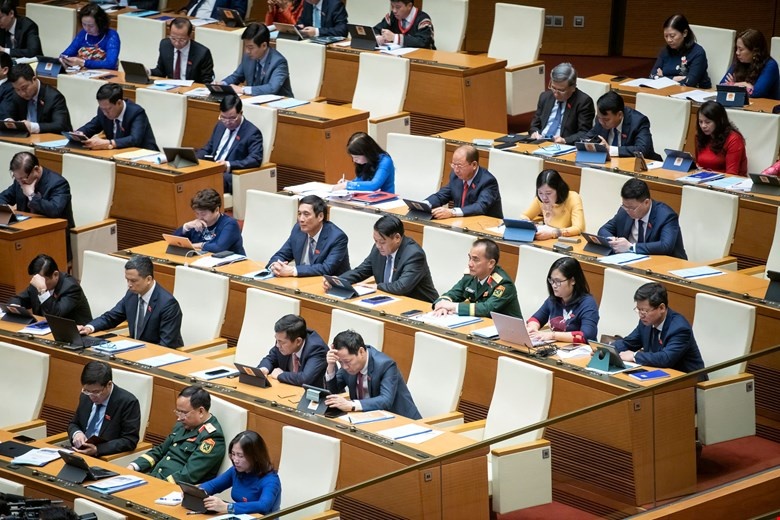
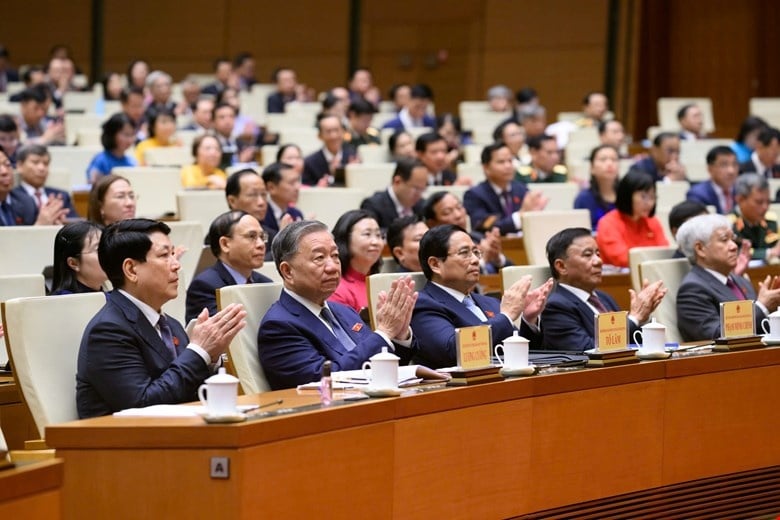


![[Photo] Prime Minister Pham Minh Chinh and Prime Minister of the Kingdom of Thailand Paetongtarn Shinawatra attend the Vietnam-Thailand Business Forum 2025](https://vphoto.vietnam.vn/thumb/1200x675/vietnam/resource/IMAGE/2025/5/16/1cdfce54d25c48a68ae6fb9204f2171a)
![[Photo] President Luong Cuong receives Prime Minister of the Kingdom of Thailand Paetongtarn Shinawatra](https://vphoto.vietnam.vn/thumb/1200x675/vietnam/resource/IMAGE/2025/5/16/52c73b27198a4e12bd6a903d1c218846)

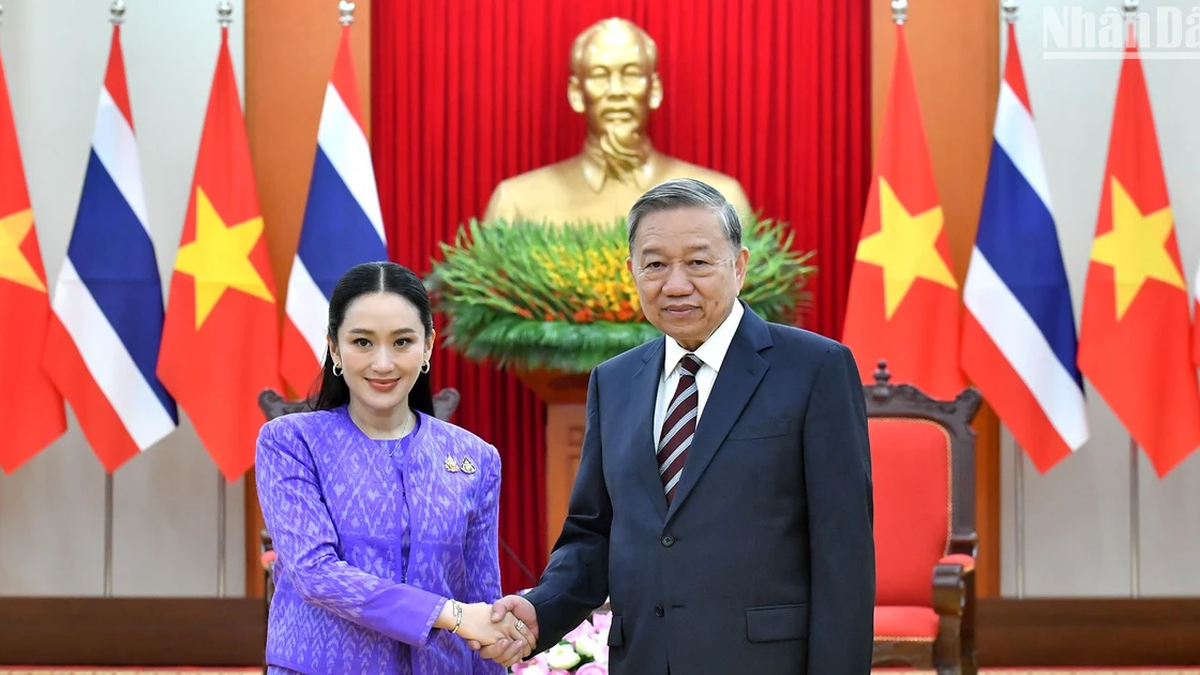


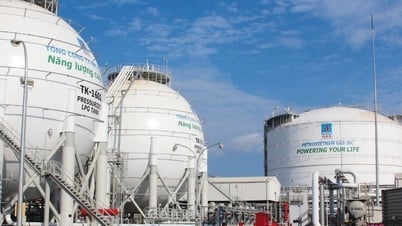


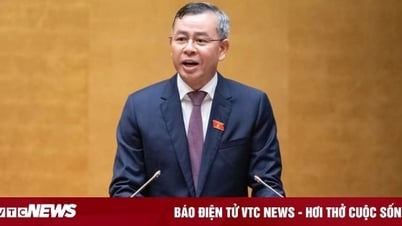











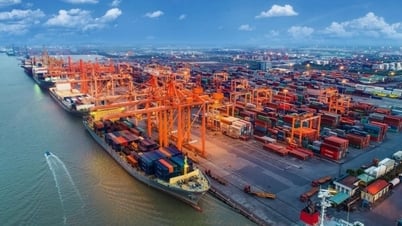

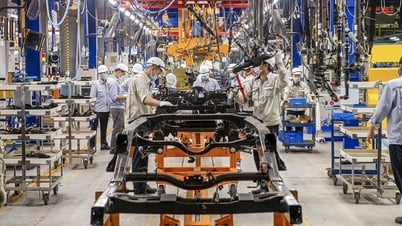

![[Photo] The Prime Ministers of Vietnam and Thailand witnessed the signing ceremony of cooperation and exchange of documents.](https://vphoto.vietnam.vn/thumb/1200x675/vietnam/resource/IMAGE/2025/5/16/935407e225f640f9ac97b85d3359c1a5)

































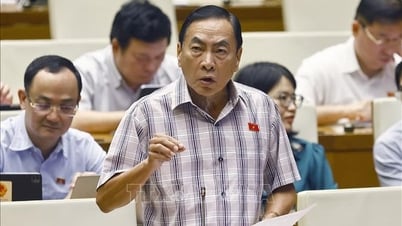


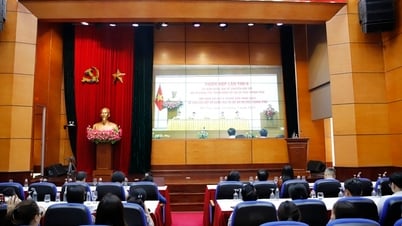
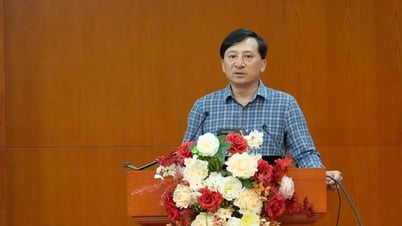

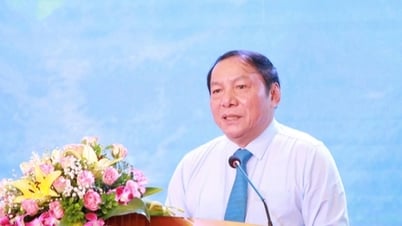

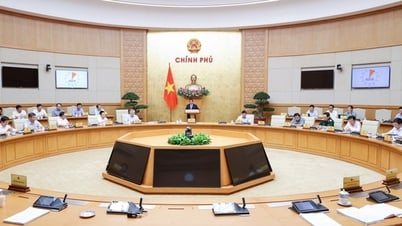








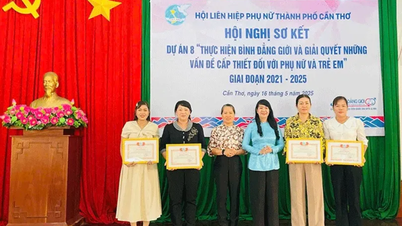











Comment (0)